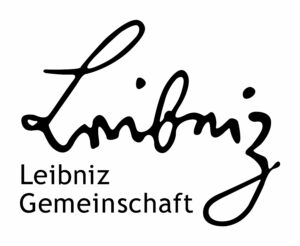Interweaving Resources: From Economic Hegemony towards a New Understanding of Resources
Bochum, 11th to 13th of March 2025
The term “resource”, deriving from the Latin verb “resurgere”, meaning “to rise again” has undergone numerous changes in its conceptual history, encompassing various meanings. Unsurprisingly, there are many facets or uses of the term “resource” among and within academic disciplines and fields. Uses range significantly in degree of reflection and contextual complexity taken into account. Today, the most common and immediatist uses often imply an economic hegemony of the human over the material world, where the first is considered as the sole source of action, while the latter is a passive receiver. These concepts helped for instance to taxonomically classify and systemically investigate environments and establish the disciplinary basis of most of our scientific approaches. Resources are, in that sense, something external to be investigated and used, thus eventually appropriated and exploited for the benefit and goals of some humans. However, theoretical refinement and critical debate have brought new light to this (economic) core meaning, proposing ways of characterising resources from a relational perspective. Resources, in this sense, are always interwoven in a complex web of social, cultural, and material relations. Within this perspective, resources previously inactive are not merely socially and culturally constructed but also inherently capable of inducing a reaction. Those affordances, e.g. very physical properties or materiality, determine the nature and extent of the actions.
Moreover, this transdisciplinary trend has been pointing towards the need for a more extensive and holistic definition, capable of integrating multiple and non-linear causalities, such as those involved in processes related to the climate change crisis. Following this line of thought, resources are never isolated nor can be fully comprehended by a single action-reaction relationship with what or who uses them. Under this perspective, the use of resources within societies can be strongly generative and restrictive, creating both necessities and opportunities completely unforeseen in the short-term, related to an occurring momentum. Therefore, the complexity added when understanding resources in those terms will automatically transfer into societies, helping us to cope with past and current societal challenges such as over-dependency on certain resources, unsustainable economical practices, global economic inequality and an uncontrolled race for innovations. Looking over the shoulder of humanities and social sciences, the most daring theoretical approaches suggest a complete turn-over of the user-resource dualism, placing all human and non-human entities involved at the same level of agency, in a process that would be otherwise considered to be a human activity. Within this flat ontology, resources occur in the situational entanglement among material things, artifacts, and bodies which may be influenced but not entirely determined by economic action.
Would the utilitarian concept of resource still be necessary for both science and humanities or should we instead frame the perspective on resource anew? The perspective of making resources “alive” shall turn back to science to explore possibilities for using science’s powerful knowledge to bring material properties and their sensual qualities to humans and their companion species in relation to deepening our understanding of (geo)resource interwovenness.
Call of papers
We invite contributors from a broad range of disciplines in humanities and social sciences to present a critical analysis of the uses of the concept of resource, illustrated through case studies in their own field and work and actively discuss towards a constructive common ground for interdisciplinary research. We expect papers from Archaeology, History, Anthropology, Cultural and Literature Studies, Sociology, Geography, and Economics, dealing with topics such as:
- Historical uses of the concept and their social and political implications
- Resource properties: Science, materialism and new materialism
- Resourcescapes
- Resource exploitation and sustainability
- Resource concept and “green energy” transitions
- Ecological systems, ecosystem services, companion species, domestication
- Human resources (labour as a resource) and modern migration policies
- Slavery and colonialism
- Globalisation
The call for papers is now CLOSED.
Registration
To register, please send an email until March 7, 2025 to reform[at]ressourcencampus-bochum.de (Subject: REGISTRATION).
Organisation
Andreas Angourakis – Ruhr University Bochum and University of Cologne
Johannes Jungfleisch – Ruhr University Bochum
Thomas Stöllner – Ruhr University Bochum and German Mining Museum Bochum
and the ReForm Team


